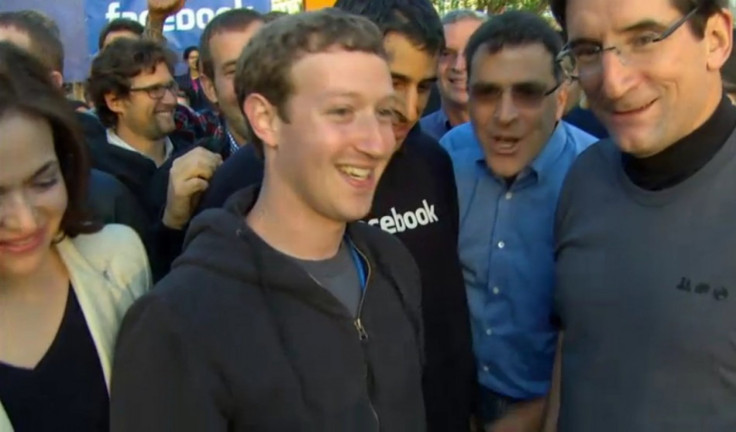Technology Focus: Facebook IPO Boosts Its Cash; Now What?

A benefit of going public for any company is to raise cash as well as mint new shares for acquisitions. Facebook (Nasdaq: FB)'s $16 billion initial public offering was no exception.
While a big motive was for CEO Mark Zuckerberg to raise cash to pay his stupendous capital gains tax bill, some corporate and individual investors wanted out. As well, Facebook wanted to raise money for general corporate purposes.
In the actual IPO last Thursday, the Menlo Park, Calif.-based website collected about $6.8 billion for itself, adding to the $3.9 billion it had available at the end of the first quarter.
Anywhere else but Silicon Valley, a company with $10.7 billion in cash and investments would be a big gorilla. Facebook also got a $5 billion credit line from its underwriters, including JPMorgan Chase (NYSE: JPM) and Goldman Sachs (NYSE: GS), which is also a major shareholder.
But with 901 million members, or 14 percent of everyone on the planet, a slowing pace of income and revenue and higher costs for developing new products, even Facebook, with 3,000 employees now, has to grow.
Zuckerberg may be a good deal maker - as any know who saw The Social Network knows - but this quarter alone he's been paying full price for acquisitions: $1 billion for Instagram, the photo app developer; $550 million for patents from Microsoft (Nasdaq: MSFT), the world's biggest software company; unspecified amounts (so far) to acquire Lightbox.com, Glancee and other smaller companies.
With a market capitalization now of $105 billion, Facebook also has shares that can be used for acquisitions.
Still, its cash and investments pale beside some of its older neighbors. Apple (Nasdaq: AAPL), the world's most valuable technology company, reported $110 billion in cash and investments, some of which will be paid back to shareholders this year.
Other technology giants also have huge piles: Oracle (Nasdaq: ORCL), the No. 1 database developer, last reported holding about $29.7 billion; Intel (Nasdaq: INTC), the No. 1 chipmaker, had $10.75 billion and International Business Machines Corp. (NYSE: IBM) reported $12.4 billion.
Not bad for Facebook, founded only in 2004, to have about as much as the likes of Intel and IBM, is it?
One advantage Zuckerberg's company has is a lack of debt. Also, the lion's share of its money is in the U.S., which means it can be tapped for an acquisition quickly without tricky repatriation issues and taxes.
Now the question is what kind of moves Facebook wants to make to stay competitive. As a product of the PC era, will it emulate Google (Nasdaq: GOOG), the No. 1 search engine, and buy a smartphone maker like Motorola Mobility Holdings (NYSE: MMI) for $12.5 billion?
Google earlier got into the video business by luring YouTube. That deal cost only $1.65 billion in 2006 and now looks like a home run.
What does Facebook want to be, anyway?
For sure, it needs to bulk up revenue. Surprisingly, despite its giant customer base, Facebook's revenue for the year ended March 31 was only $4.04 billion with net income of $973 million.
Surely it was underperforming given the trove of data it's collected about its users, their preferences and tastes. It's the job of Zuckerberg and COO Sheryl Sandberg to juice up revenue fast, while keeping their new investors happy.
Internet companies like Yahoo (Nasdaq: YHOO), the No. 3 search engine, learned the hard way how that works. Its latest CEO now has to deal with three new outside directors who own about 6 percent of the company.
What's ahead? Who can read the mind of a 28-year-old billionaire CEO? Let's hope he's heeded the lessons of others who didn't adapt quickly to anticipate new products and services.
It's no accident that Harvard Business School professor Clayton Christensen labels this The Innovator's Dilemma.
© Copyright IBTimes 2024. All rights reserved.












